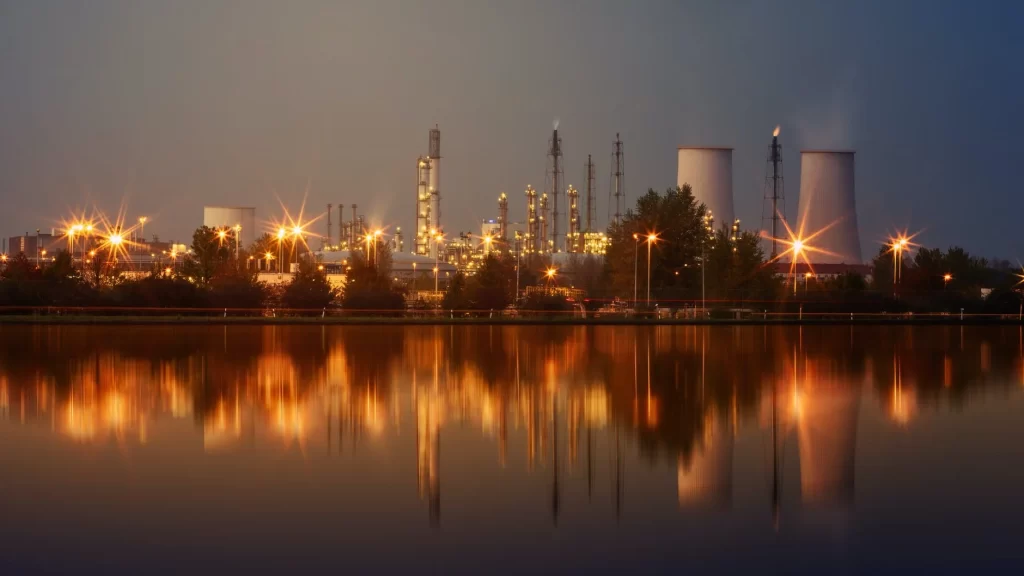The EU’s dilemma: energy at the expense of human rights
23 March 2022 /
Maral Kaplan 4 min

The events leading to the invasion of Ukraine by Russia have been accompanied by a rise in the price of hydrocarbons, which has highlighted the energy dependency of the European Union. In fact, 80% of imported gas in the EU comes from third countries such as Russia, Norway, Algeria and Qatar. Russian gas represents, in that regard, 40% of the imports. This dependency has often been a way of diverting attention from human rights violations in gas exporting countries. In this context and given the current conflict, the diversification of energy sources and speeding up the green transition are essential.
Dependency from Russia
The current conflict between Russia and Ukraine finds its roots in the 2013 Maidan protests that crushed the pro-Kremlin and corrupt authorities of Kiev. This quickly resulted in the opposition between the eastern (Russian-speaking) and western (Ukrainian-speaking) regions of the country. The political fragmentation has led to internal conflicts in the East of Ukraine. Under the pretext of its responsibility to protect the Russian-speaking population against discrimination, Russia annexed Crimea in March 2014. Following this, the eastern regions of Luhansk and Donetsk declared their independence with the support of the Kremlin. Recently, the situation escalated even more, with Moscow recognizing Donetsk and Luhansk People’s Republics as independent and invading Ukrainian territory. The immediate consequence for Europe in terms of energy is a rise in gas and oil prices, with a high risk of Russia cutting its supplies.
Which alternatives?
Since, according to Eurostat, Russia is the main energy supplier to the EU, diversification of energy sources and providers is essential given the current situation. Several alternatives are on the table in order to bypass Russia. There is, in fact, the possibility to increase hydrocarbon supplies from Qatar, Algeria, Azerbaijan or even from Israel through the Eastern Mediterranean pipeline project (EastMed). The latter would connect Israel, Cyprus and Greece to the rest of the EU. However, the commissioning of this project is only planned for 2025-2027. As a matter of fact, in order to proceed to diversification and to avoid the Russian monopoly, in February 2022 the EU and Azerbaijan agreed to boost the country’s gas supplies to the Union.
However, the respect for human rights in some of these exporting countries is questionable. For instance, in the case of Azerbaijan, EU officials have often praised the collaboration in the energy sector while staying cautious when referring to the situation related to human rights in the country. In fact, the President, Ilham Aliyev, who succeeded his father in 2003, is ruling the country with an iron hand. The Economist Intelligence Unit’s Democracy Index is ranking Azerbaijan 141 out of 167 countries, between Nicaragua and Cuba. In that regard, the country’s recent media law also sparked a lot of criticism, notably in the Council of Europe. This new legislation indeed restricts free speech and media freedom through the imposition of significant restrictions on media and journalists. Rich in natural resources, Baku has often resorted to what is called “caviar diplomacy” to cover these human rights violations and to gain some political support at the international level. The “caviar diplomacy”, described as a “systematic bribing of international actors” by the European Stability Initiative, was used as a strategy by the Azerbaijani authorities at multiple times.
When it comes to the energy sector, Baku supplies the EU through the TANAP pipeline. For Patrick Bond, expert in development economics, « Azerbaijan is being used as an EU alternative to Russian gas, but this comes at the expense of the country’s ecology and its citizens ». In fact, the citizens living near gas and oil fields have to deal with environmental problems such as air and water pollution while having their fundamental rights violated regarding access to education, health and housing. In addition, the Organized Crime and Corruption Reporting Project (OCCRP) has also reported multiple corruption cases surrounding the Shah Deniz 2 project, which is the gas field feeding the EU through the TANAP pipeline.
Furthermore, on the eve of the Russian invasion of Ukraine, Ilham Aliyev and Vladimir Putin signed an alliance agreement to boost energy cooperation between the two countries. Both Azerbaijan and Russia seem to agree on not competing regarding gas exports, which could lead to a form of coordination of gas supplies to Europe.
Renewable energies as the sustainable choice
A sustainable solution to the energy dependency of the EU, compatible with its values and the respect for the environment, would be the green transition. Indeed, the European Commission’s Green Deal aims at achieving the EU’s carbon neutrality by 2050, as well as transforming various sectors of society. To this end, renewable energies such as hydropower, solar and wind energies are key. Green hydrogen could also be developed further as a green alternative to fossil fuels in Europe. In fact, in July 2020 the EU presented its green hydrogen strategy, which aims at producing one million tonnes of green hydrogen by 2024 and 10 million tonnes by 2030 through the installation of 40 GW electrolysers.
However, the green transition is a long term process, which cannot be immediately deployed today in order to replace gas and oil imports in the EU. Especially in the case of green hydrogen, its development needs significant and major investments. Nevertheless, this green transition certainly constitutes the path that the European Union should follow to achieve its energy independence. Green energies will indeed contribute to the creation of jobs and will support economic growth in Europe.
Europe’s energy independence therefore remains an overriding objective that goes along with the respect of fundamental rights. Although the green transition is a long term process, it is fundamental to follow the framework established by the European Green Deal in order to achieve not just the EU’s environmental and energy objectives, but also to reduce its reliance on supplies from non-democratic countries.
